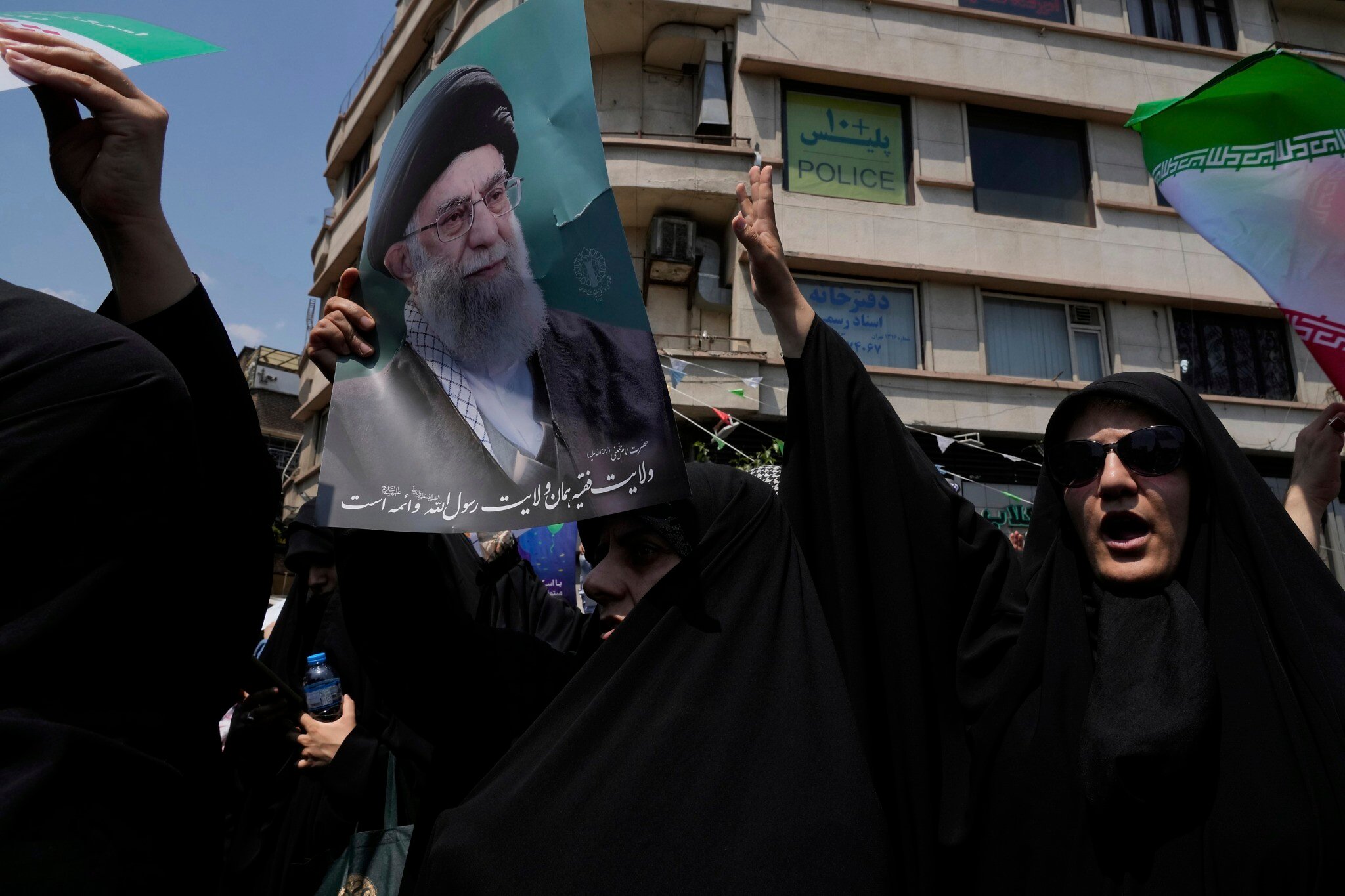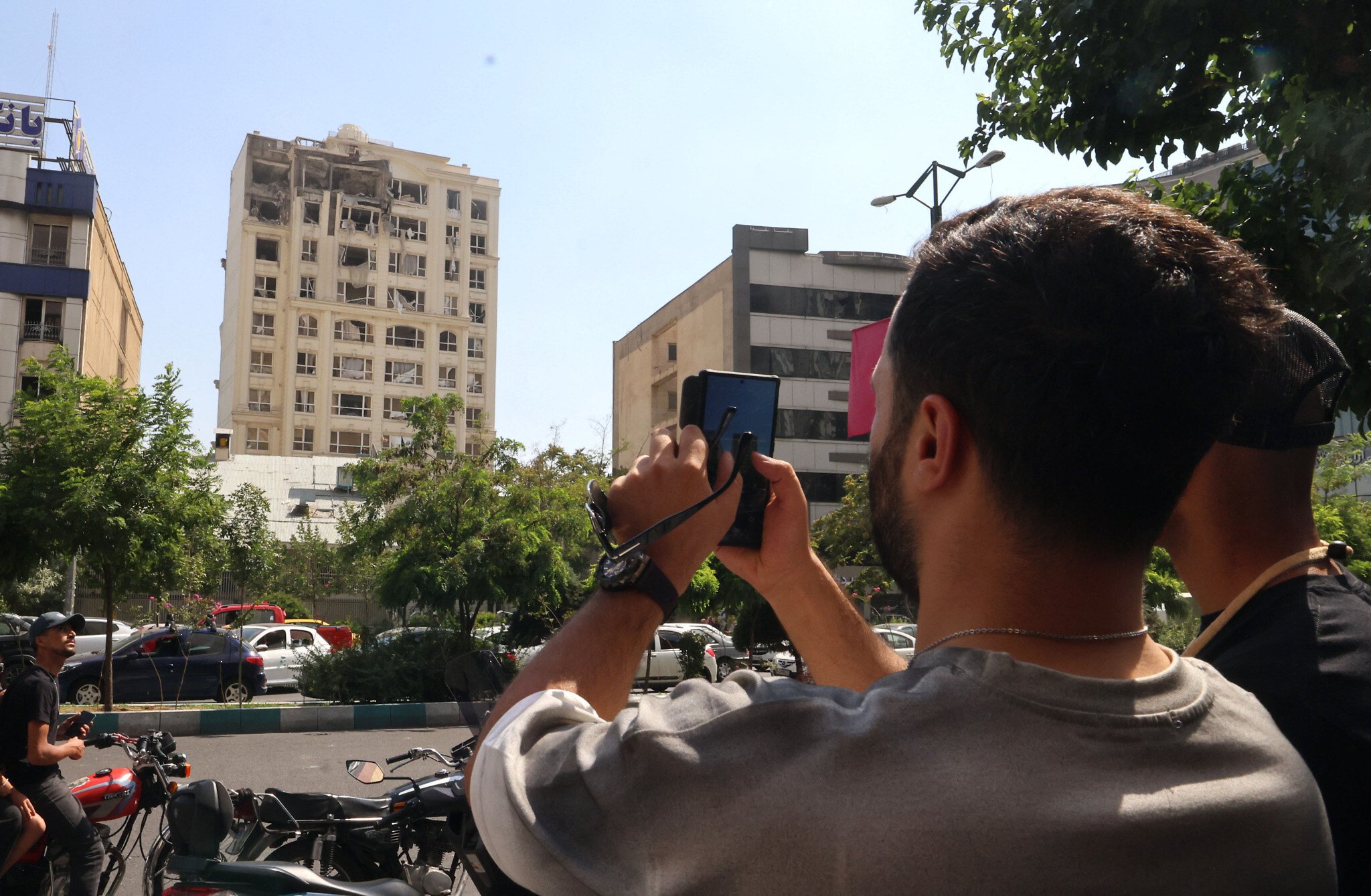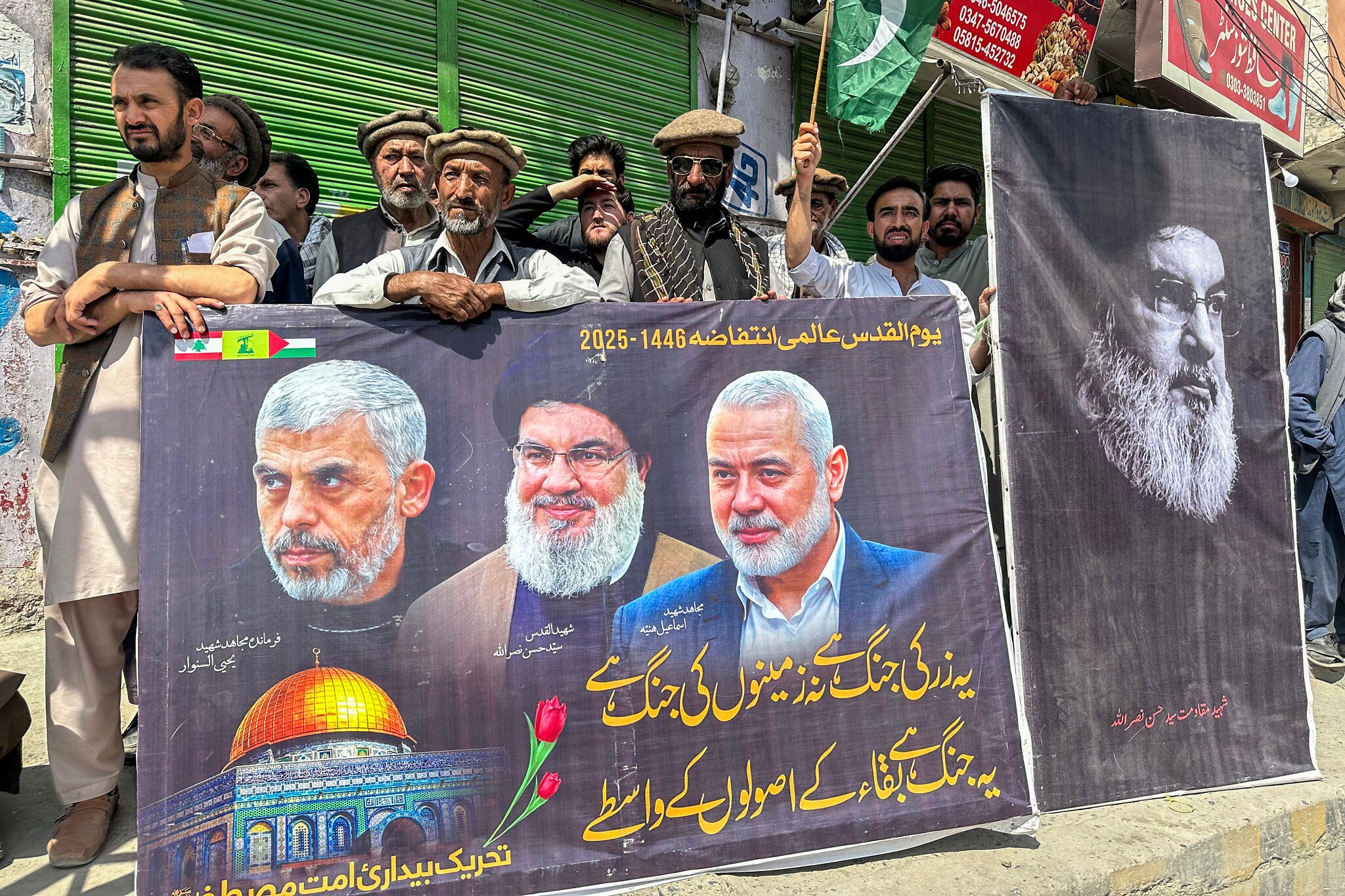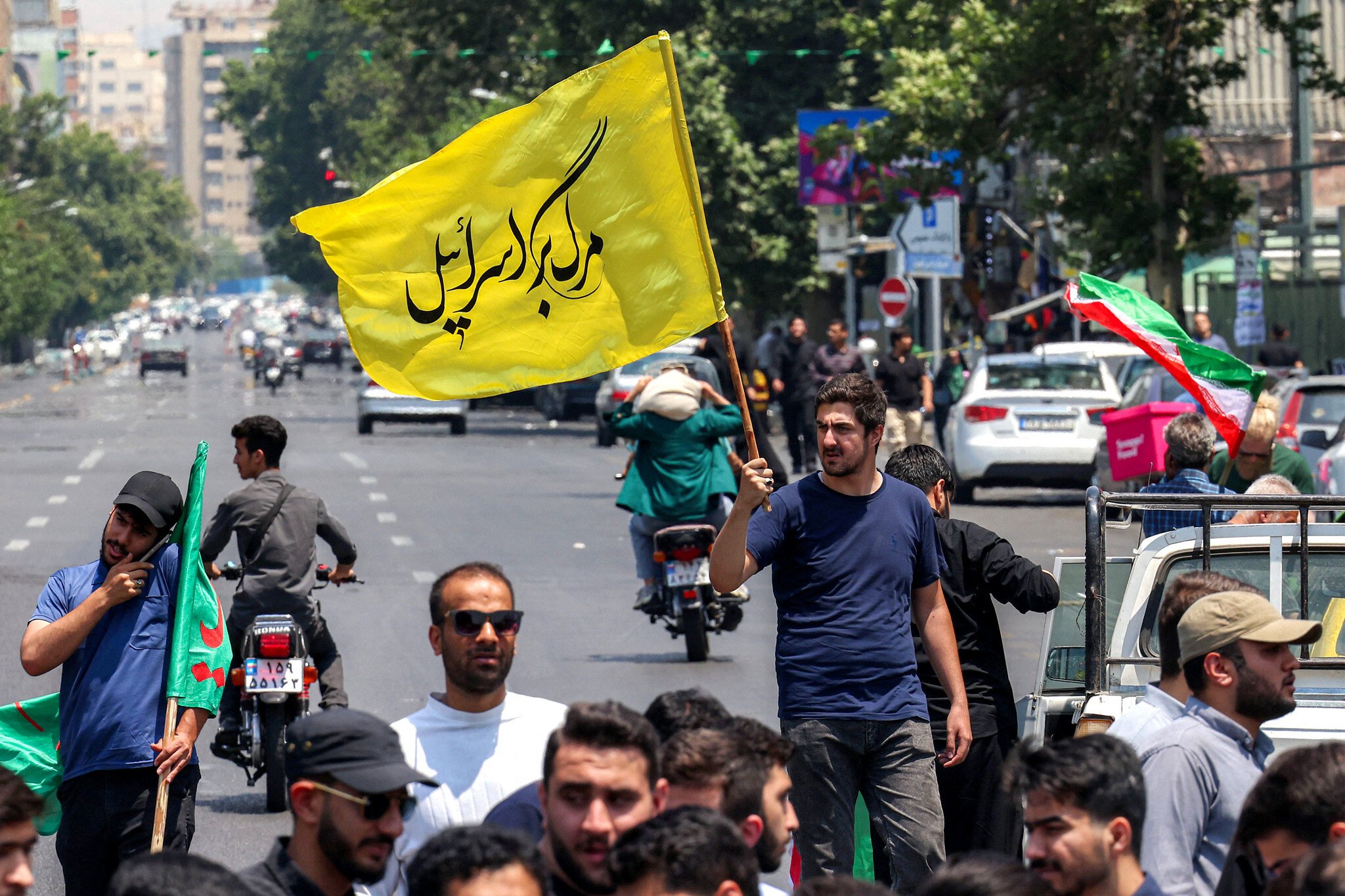



TEHRAN, Iran — Some Iranians called for revenge on Friday, demanding a swift response to a dizzying wave of strikes by Israel, as small numbers took to the streets in scattered protest, while others sheltered inside, unsure what would happen next.
The aerial onslaught killed several of the military’s top brass, targeted an array of leading scientists and struck military and nuclear sites across Iran in an unprecedented attack. AFP journalists reported anger directed at Israel rather than the ayatollahs’ regime.
“How much longer are we going to live in fear?” asked Ahmad Moadi, a 62-year-old retiree, echoing the regime line. “As an Iranian, I believe there must be an overwhelming response, a scathing response.”
The raids appeared to push the longtime enemies into full-blown conflict following years of fighting a shadow war mostly conducted through proxies.
Iran regularly arrests individuals it accuses of spying for Israel amid a flurry of targeted assassinations and acts of sabotage targeting its nuclear program in recent years.
At least six scientists involved in Iran’s nuclear program were killed in Friday’s strikes.

“They’ve killed so many university professors and researchers, and now they want to negotiate?” Moadi exclaimed, referring to calls for Iran to go ahead with nuclear talks with Israel’s US ally planned for this weekend.
As Iran continued to assess the damage, some residents rallied in the streets of Tehran chanting: “Death to Israel, Death to America,” while waving Iranian flags and portraits of supreme leader Ayatollah Ali Khamenei.
State television said similar demonstrations were held in cities across the country.
The Israeli strikes followed repeated threats from Prime Minister Benjamin Netanyahu, who appeared to finally cap a years-long threat to strike Iran’s rogue nuclear program.
Iran, which avowedly seeks Israel’s destruction, has consistently denied seeking to acquire nuclear weapons. However, it has been enriching uranium to levels that have no peaceful application, has obstructed international inspectors from checking its nuclear facilities and expanded its ballistic missile capabilities, and its officials have increasingly warned that they could pursue the bomb.
“We can’t let this bastard continue, or we’ll end up like Gaza,” Abbas Ahmadi, a 52-year-old Tehran resident, told AFP from behind the wheel of his car. “Iran must destroy him, it must do something.”
Friday’s attacks came after more than a year of soaring tensions as Israel took on Iran’s proxies — Hamas in Gaza, Hezbollah in Lebanon and the Houthis in Yemen.
Hamas launched the assault on southern Israel on October 7, 2023, killing some 1,200 people and taking 251 hostages. Hezbollah began firing at Israel the next day and the Houthis began attacking Israeli-linked shipping and firing drones and Ballistic missiles at Israel.

Amid the tensions, Israel and Iran exchanged aerial barrages on two separate occasions last year. while stopping short of a full-scale war.
But following Friday’s attack, all bets were off over what would come next, with Khamenei warning Israel faced a “bitter and painful” fate, while the Iranian military said there would be “no limits” to its response.
While those at the protests expressed anger at Israel and support for the regime, there were no mass protests and many posts on social media by Iranian exiles expressed hope that the killing of many of Iran’s top military leadership could hasten the end of the Islamic Republic.
Apart from scattered protests, Tehran’s streets were largely deserted, except for queues at petrol stations, a familiar sight in times of crisis.
Air traffic was halted at Tehran’s Imam Khomeini International Airport amid disruption across the region.
In the upscale district of Nobonyad in north Tehran, rescuers continued to comb through the rubble of two apartment blocks that appeared to be precisely targeted in Israeli strikes.

Iran’s Nour news said 78 people were killed and 329 wounded in strikes on residential areas in Tehran.
Families with tear-streaked faces gathered nearby.
“They want to deprive us of our nuclear capability — that’s unacceptable,” said Ahmad Razaghi, 56, calmly echoing the official line.
For Farnoush Rezaei, a 45-year-old nurse wearing a colorful hijab, Friday’s attacks represented a final act by Israel — a country “on its last breath.”
Iranian leaders have for decades insisted that Israel will “soon” disappear. “If God wills it, at least a bit of peace will come from this,” said Rezaei.
